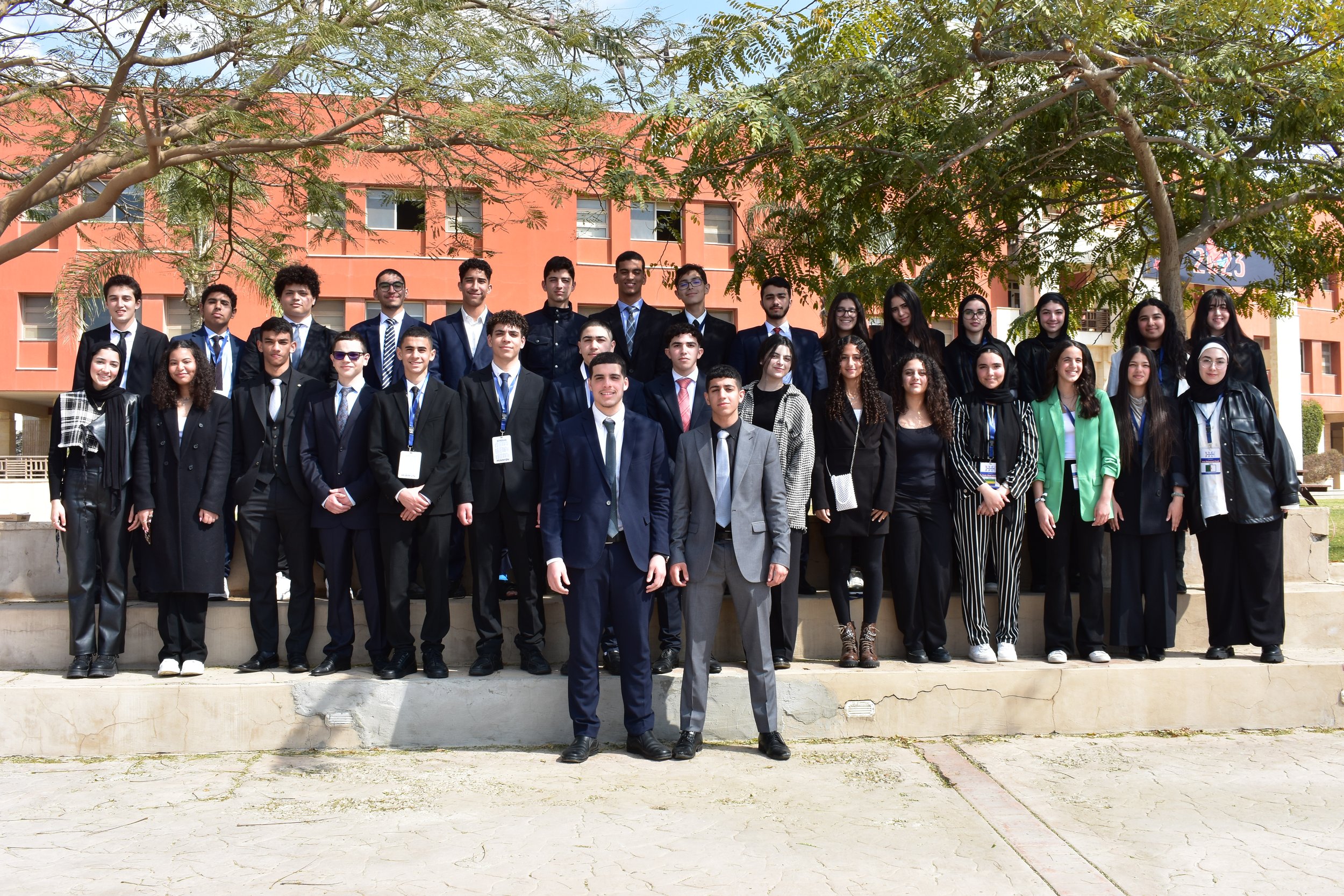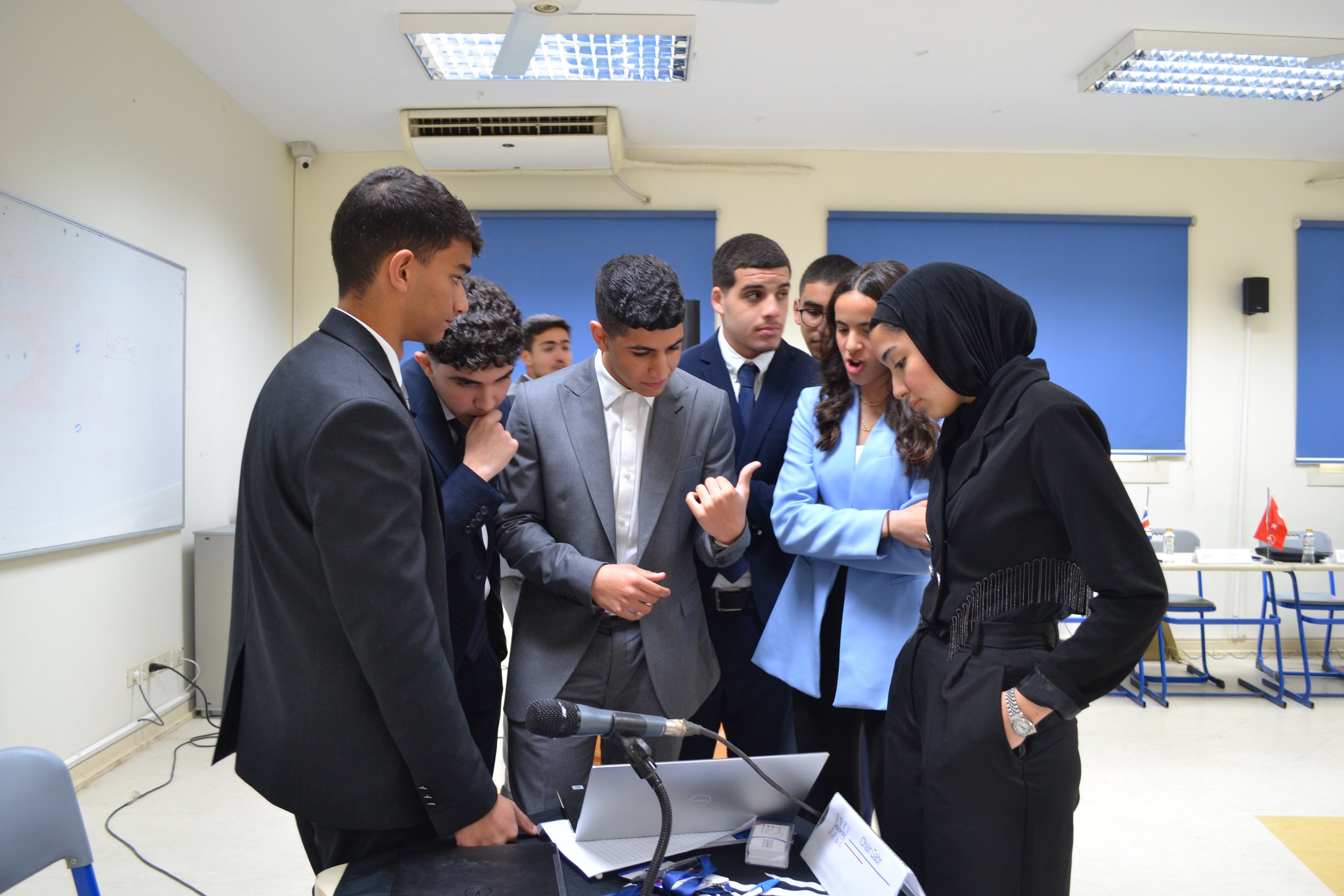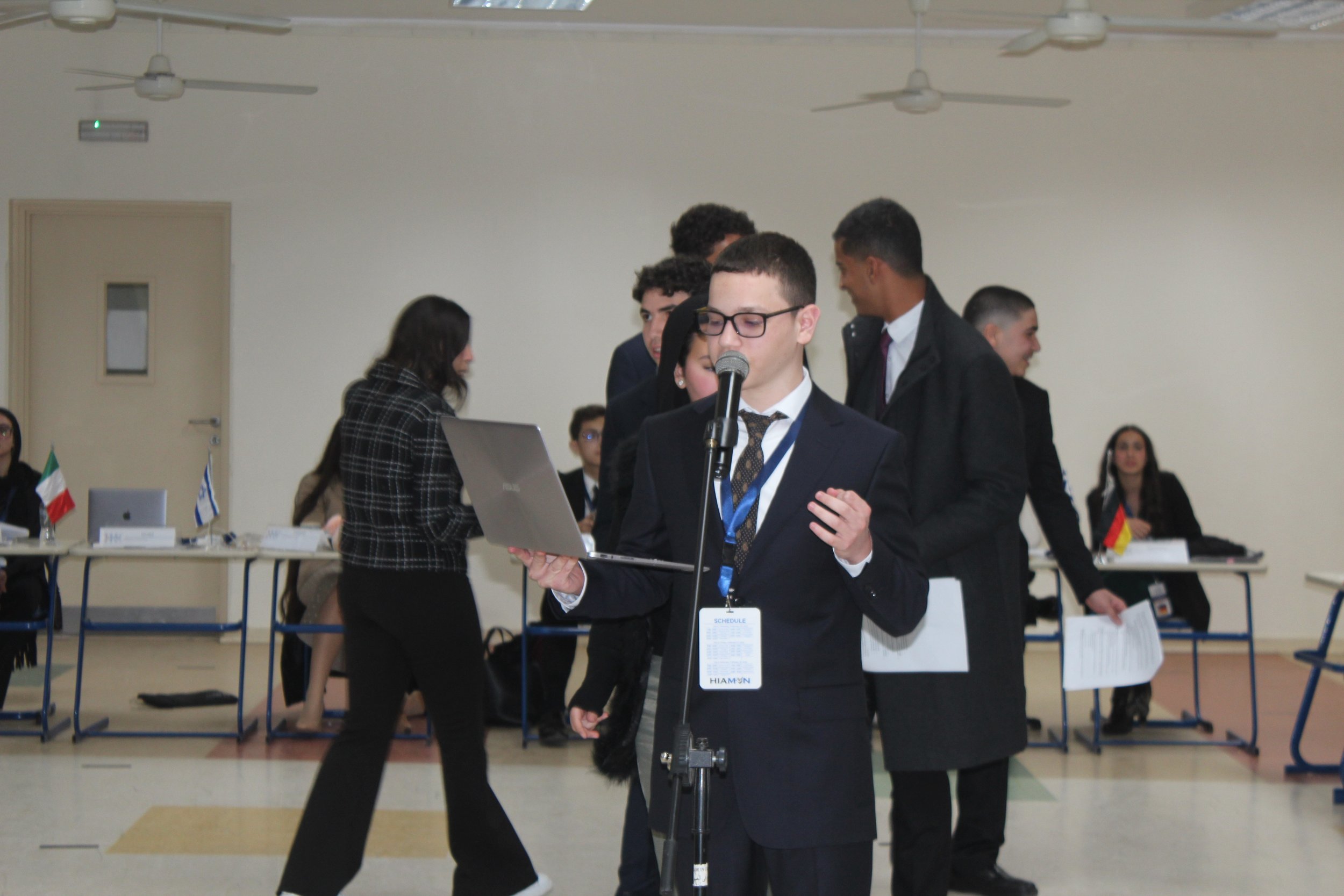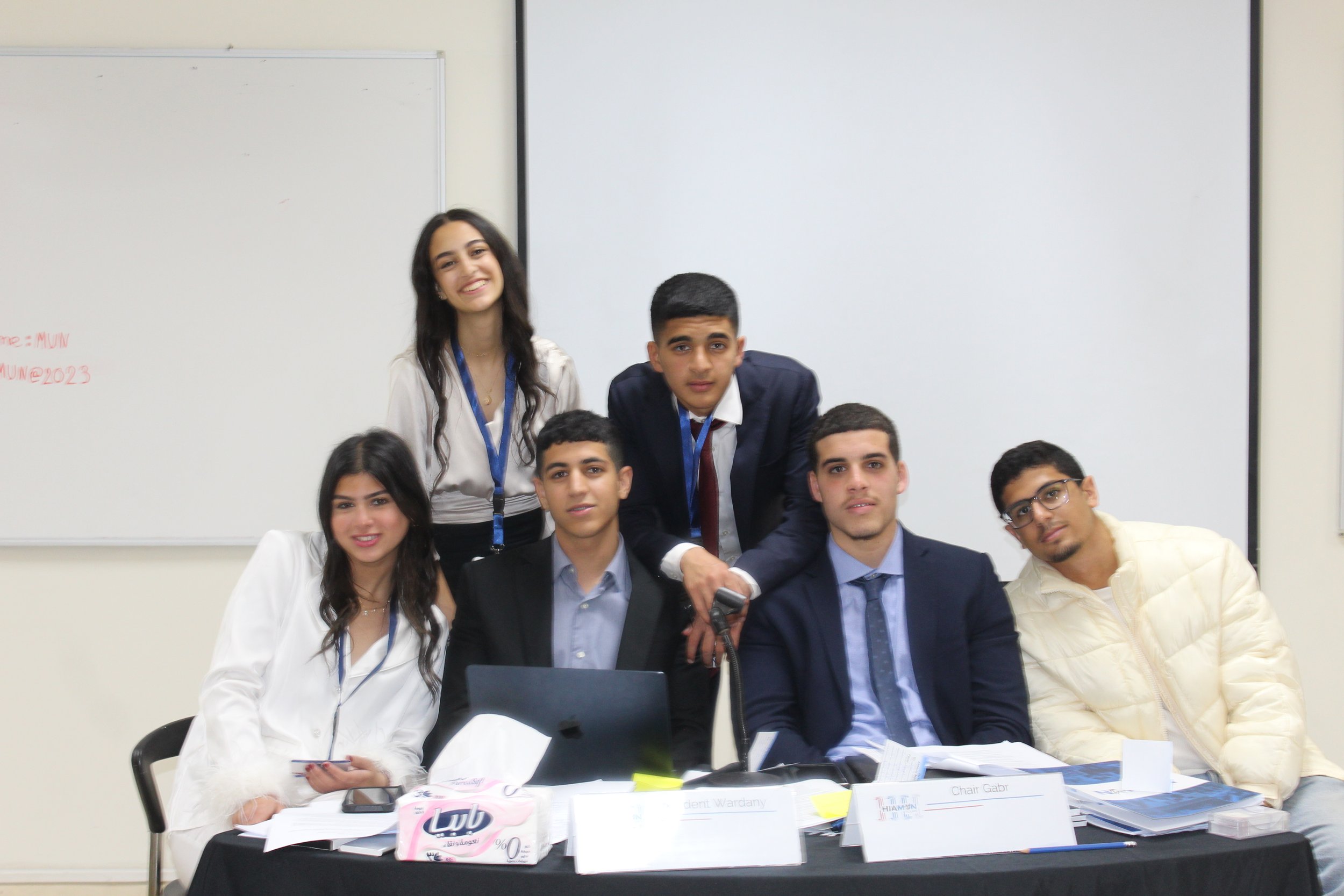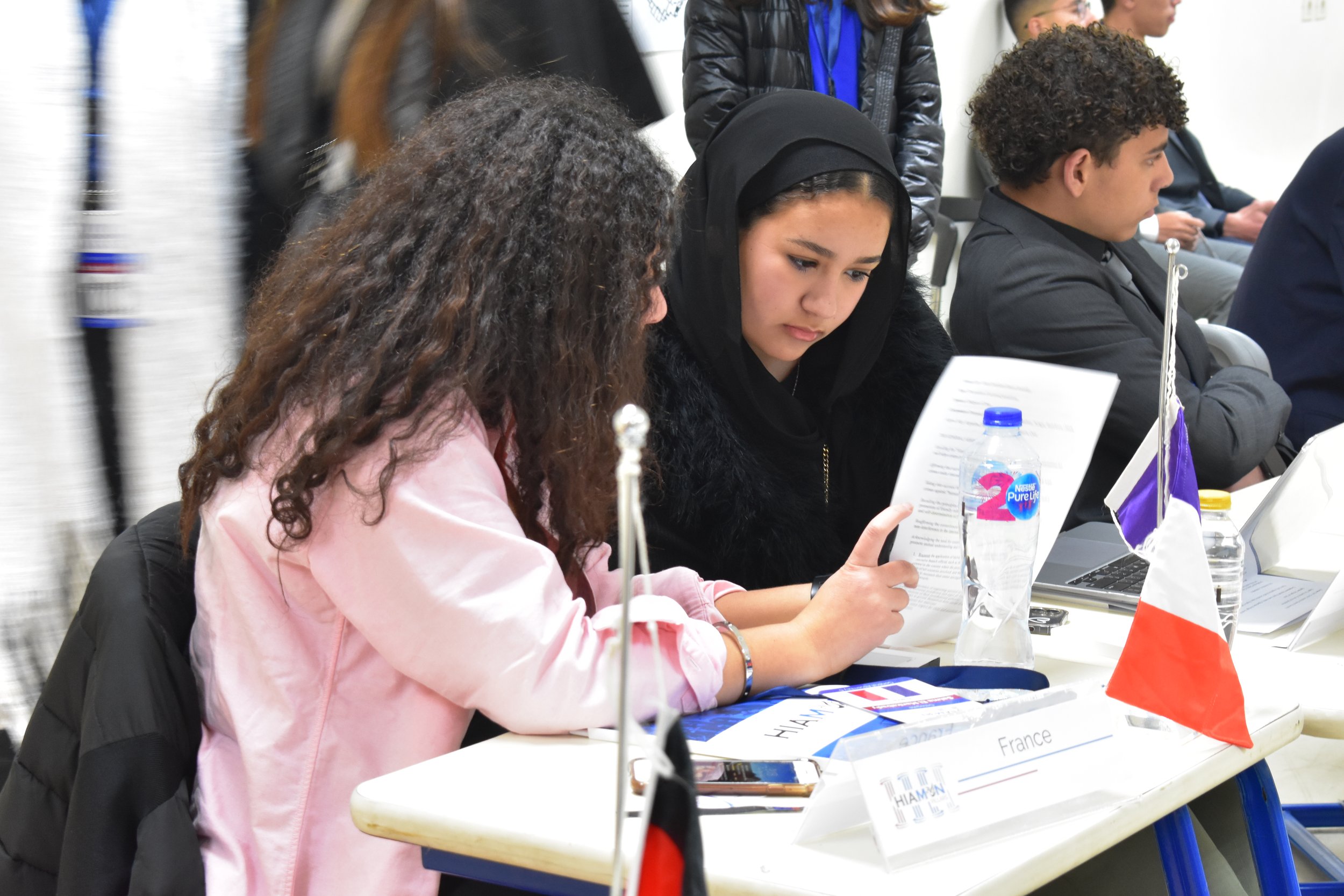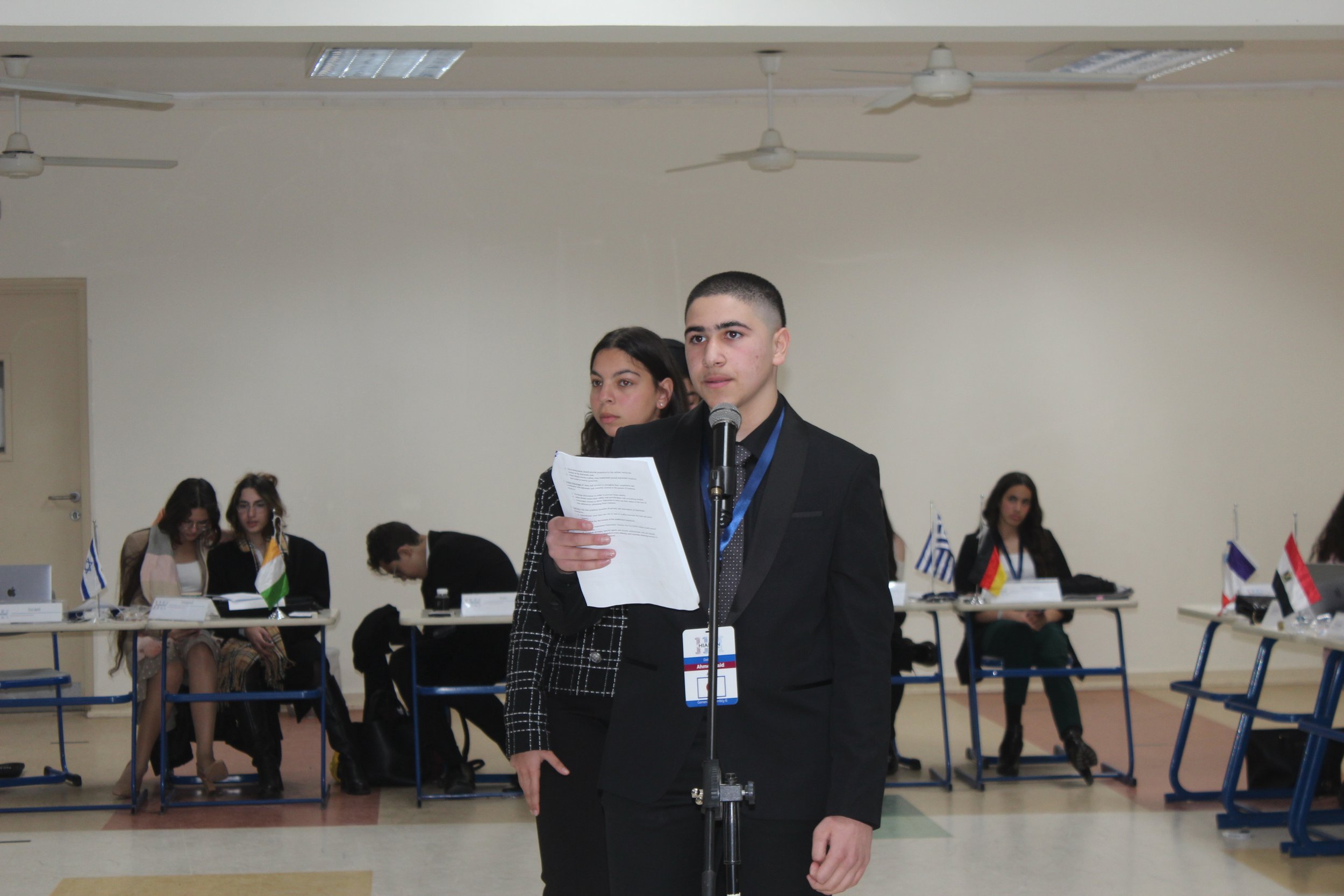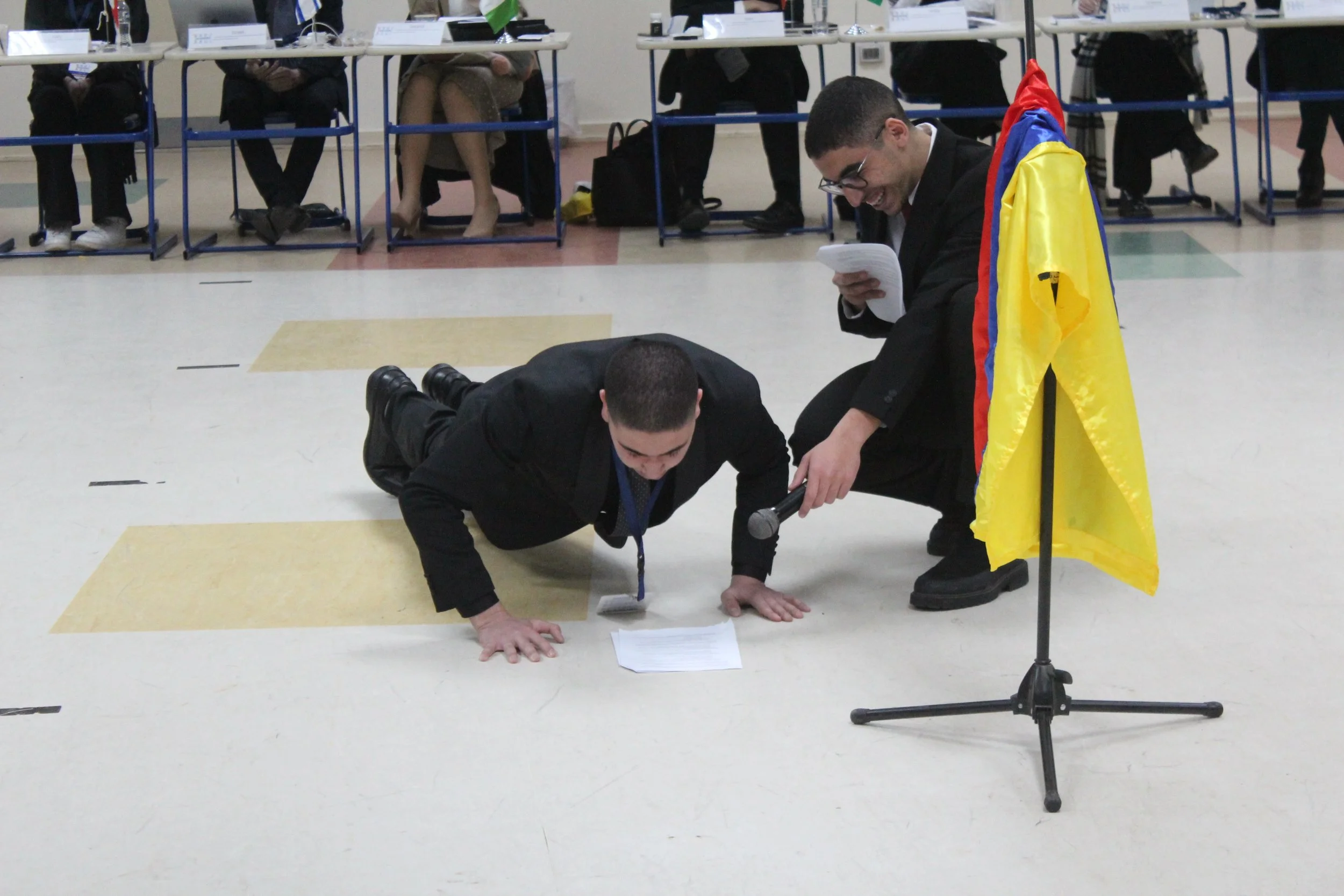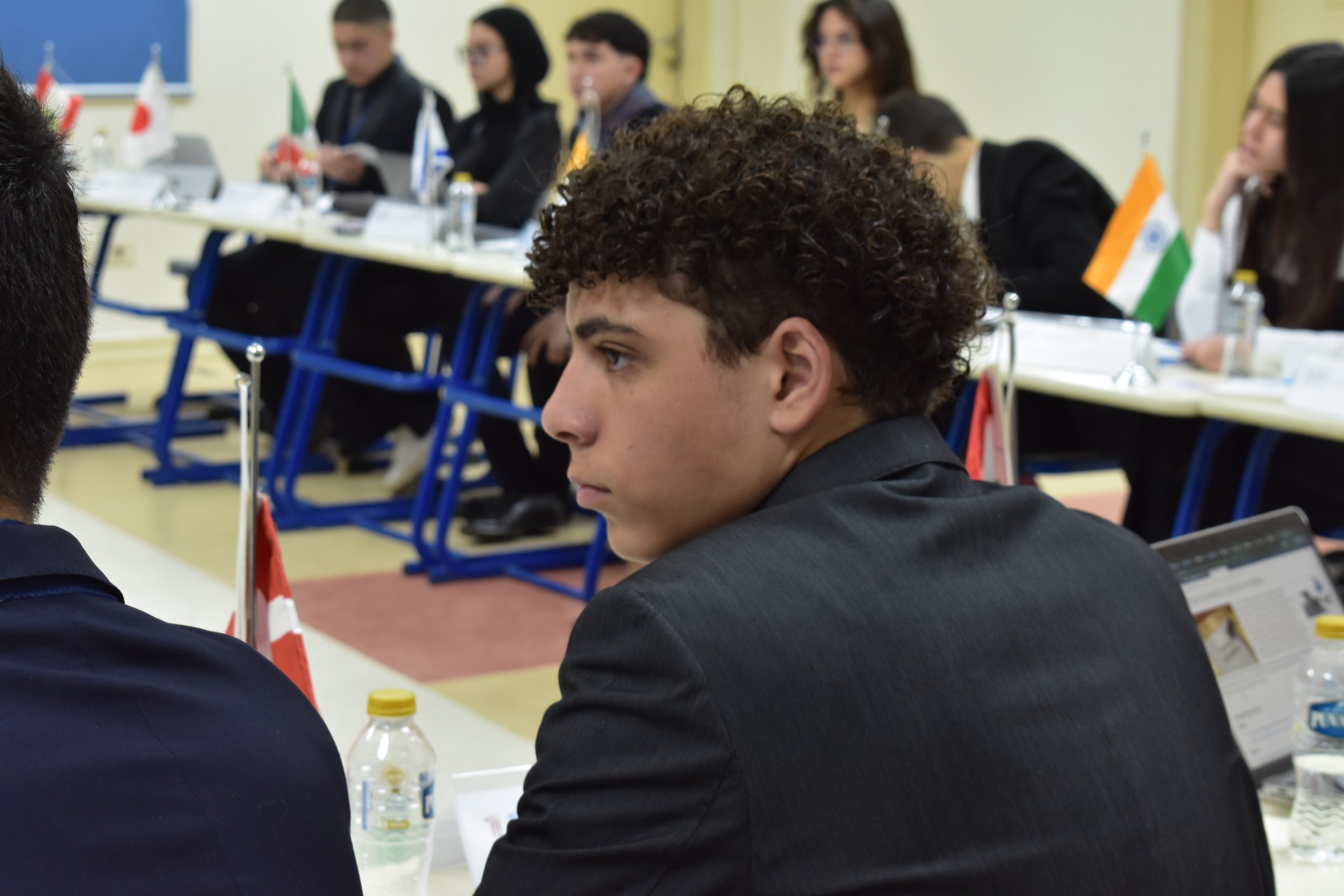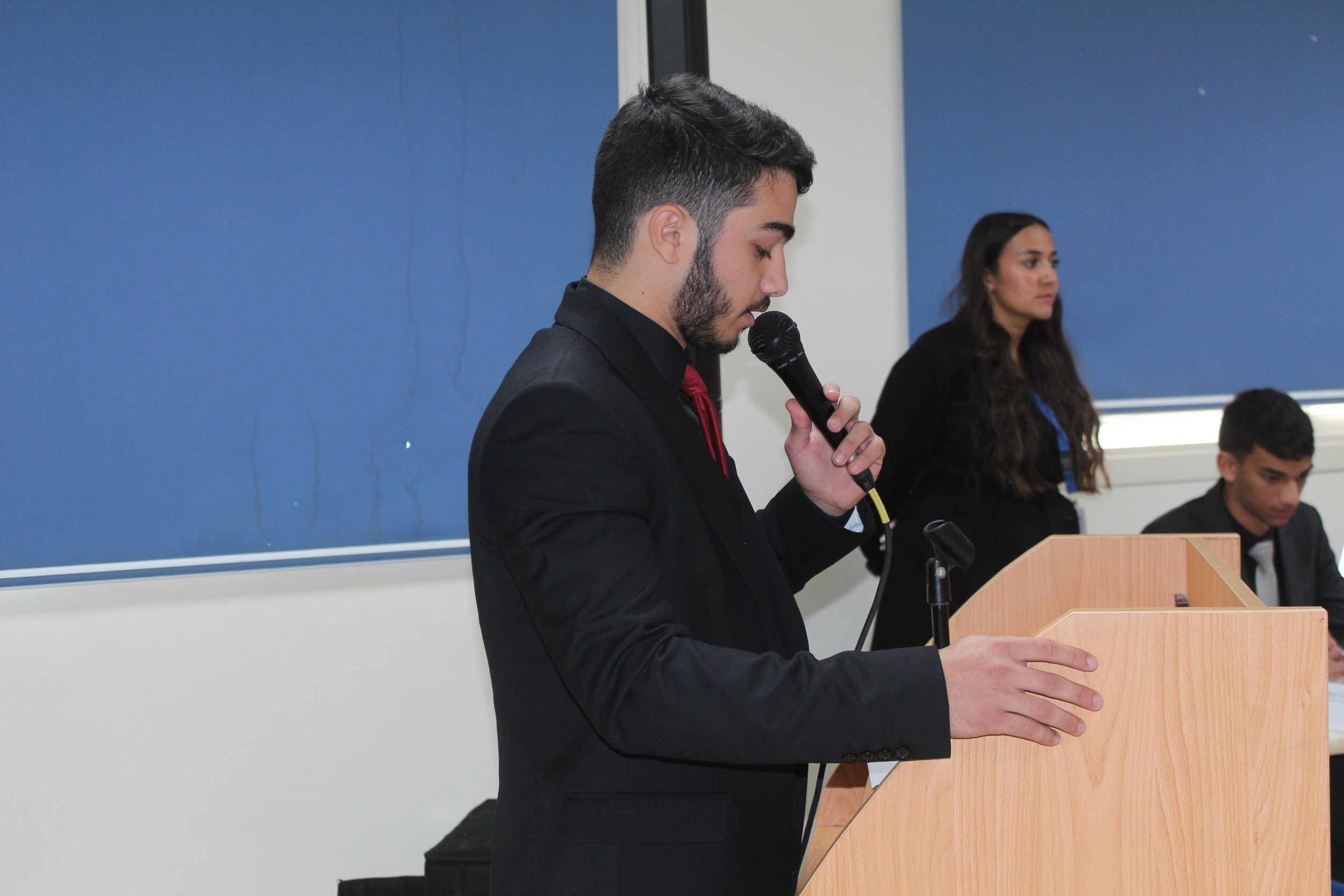General Assembly Sixth Committee
Rasheed Salem, President
Sophia Sabry, Chair
Honourable Guests and Esteemed fellow AC and OC
Thought, beliefs and perceptions are often not translated into reality not because of the little acknowledgment they get, but rather because of the weak network formed between one’s expressions and another's ability to comprehend. This year’s theme, synapses, strengthens this vulnerable network by filling the gap that creates misapprehension and room for error. These synaptic connections create more space for our delegates to express themselves freely whilst manufacturing a network of fathom and interpretation.
The general assembly’s sixth committee is the primary forum for the consideration of legal questions in the General Assembly. Is the very entity that we define right and wrong upon. Discussing the lawfulness behind the major pillars that our countries set their distinct and precise constitutions upon. The committee’s purpose is to create and maintain a self-sufficient network where citizens of the world can exercise their freedom within the boundaries of regulations that achieve peace and stability. Simultaneously, generating the room for acknowledgment and identity.
It is with honour and pleasure that my most esteemed chair Sophia sabry and myself welcome you to HIAMUN 25. Sophia and I have chosen three very distinctive and dominant topics to debate in this year’s GA6. Ensuring and creating the room for our delegates to flourish and outshine each other individually and holistically through debate and the very simple yet complex ways of crafting a solution that fits the majority of the house. And above all, making controversy the top of our priority list.
Firstly, setting a framework to legalise the consumption of cannabis and marijuana. Whilst it is the general assembly’s sixth committee’s responsibility to ensure the safety and well being of citizens, nonetheless it is also it’s paramount purpose to secure the right of citizens exercising freedom and entitlement to their rights. This very unique topic offers pivotal opportunities for delegates to express themselves and advocate for what they believe is right in the name of the legal entity.
Our second topic tries to find measures to establish international legal frameworks for colonisation and post war compensation. In the past generations we find vile, foul and illegal invasions by oppressors and those in power taking advantage of the weak and vulnerable, thinking it would go unrecognised or unacknowledged. Shame on those who grasp power and throw their fists of destruction in the faces of innocent populations only to benefit financially and economically. Sadghuru once said ‘there is no past, no future, everything simply is’ Today we do not forget our devastating pasts, but choose to live in it and grow through it. It is with this topic that we secure our world from violent oppressors and work systematically to ensure the compensation of those wronged and harmed in many horrible ways.
Our third and most holistic topic, ‘questioning the application of humanitarian law’ Interrogates and puts to question how oftenly, appropriately and efficiently humanitarian law is exercised around the legal systems of the world. This supreme topic regards the very charter that defines us as humans. Holding accountable those choosing to ignore the application of it to exercise their concealed crimes against humanity. Today we choose to be on the right side of history. Today we reform ourselves not for the satisfaction of others but for the well being of humanity. Today we rinse ourselves from the dirt we’ve been holding on for generations to hide our atrocities. Today we changed. Today we fight for those we have caged.
Sophia and I can’t wait to see what our delegates have to put on the table showcasing their unique abilities and presenting their distinct identities. Making sure to guide the debate in the path of growth and flourishment. I hope you're excited, cause we definitely are.
Rasheed Salem, President of the General Assembly Sixth Committee
Topics
1. Setting a framework to moderate the consumption of cannabis and marijuana. (Podcast)
2. Finding measures to establish international legal frameworks for colonization and post-war compensation. (Podcast)
3. Questioning the application of humanitarian law. (Podcast)
